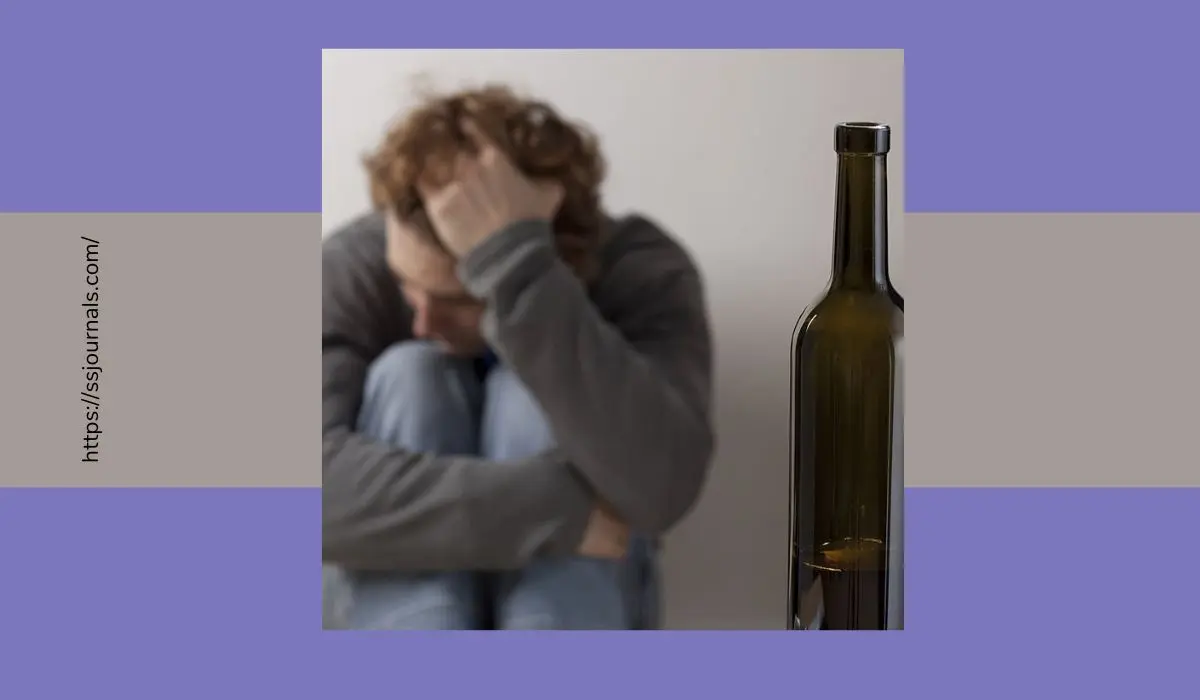Alcohol withdrawal refers to the cluster of physical and psychological symptoms that occur when someone who is alcohol-dependent drastically reduces or stops drinking.
Dependence causes neurotransmitter and chemical changes in the brain that result in an imbalance when alcohol is removed.
This makes withdrawal potentially dangerous and life-threatening in severe cases. Understanding the timeline, signs, symptoms, and treatments for alcohol withdrawal is essential.
What Do You Mean By Alcohol Withdrawal?
Alcohol withdrawal occurs because the brain and body have become dependent on alcohol to function properly. Dependency causes adaptations like lowered neurotransmitter levels and alcohol-responding endorphins.

When alcohol consumption stops, the nervous system becomes hyper-excited leading to an array of withdrawal symptoms. The severity and duration of symptoms are highly individualized based on the degree of alcohol dependence.
Signs And Symptoms Of Alcohol Withdrawal
Alcohol withdrawal symptoms tend to occur in a predictable timeframe:
Early withdrawal phase (6-12 hrs after last drink):
Acute withdrawal phase (1-3 days after last drink):
– Trembling hands
– Insomnia
– Rapid heart rate
– Heavy sweating
– Fever
– Headache
– Delusions or hallucinations
Protracted withdrawal (Post-acute, can last for months):
– Fatigue
– Trouble thinking clearly
– Memory problems
– Emotional mood swings
– Anxiety
– Insomnia
– Impulsiveness
How Long Do Alcohol Withdrawal Symptoms Last?
Alcohol withdrawal refers to the often uncomfortable psychological and physical symptoms that occur when someone dependent on alcohol abruptly reduces their intake or stops drinking completely. Symptom duration depends on the severity of alcohol dependence.
In general, acute alcohol withdrawal peaks within the first 1-3 days after cessation of drinking. It is during this stage that potentially dangerous symptoms like seizures, delirium tremens, and cardiac arrhythmias can occur.
Other common symptoms like sweating, tremors, nausea, anxiety, and insomnia tend to progressively worsen over the first 48-72 hours.
If uncomplicated, many physical withdrawal symptoms resolve within 5-7 days. However, psychological symptoms like mood swings, fatigue, impaired concentration, and cravings may wax and wane for weeks to months after withdrawal.
This protracted withdrawal period often includes waves of depression and anxiety as the brain chemistry struggles to recalibrate in the absence of alcohol. Sleep disturbances, irritability, and alcohol cravings can make early recovery challenging.
The timeline varies based on individual factors like genetics, the severity of alcohol abuse, nutritional health, and whether co-occurring medical or mental health disorders are present.
Supportive medical care, therapy, lifestyle changes, and social support all help facilitate the recovery process.
While acute withdrawal symptoms may subside within days, it’s important to understand that full psychological healing and brain recovery can take many months. Being aware of this prolonged timeline helps set realistic expectations.
Treatments for Alcohol Withdrawal
– Medications:
Benzodiazepines like lorazepam are used for sedation, anxiety, blood pressure and seizure control. Other drugs target specific symptoms.
– Thiamine and electrolyte replacement:
Corrects nutritional deficiencies common in alcoholism. Prevents Wernicke’s encephalopathy syndrome.
– Clinical monitoring:
Due to risks like delirium tremens, withdrawal is best managed under qualified medical supervision. IV fluids and medications may be administered.
– Gradual tapering:
For moderate-severe dependence, alcohol intake may be slowly tapered off over several days to avoid dangerous cold-turkey withdrawal.
– Supportive care:
Counseling, cognitive behavioral therapy, and support groups help establish recovery and prevent relapse.
Conclusion
Alcohol withdrawal symptoms can be unpredictable and dangerous for someone physiologically dependent on alcohol.
Social support, nutrition, and medical treatment under clinical guidance are crucial during detox and recovery.
Severe withdrawals that progress to seizures or delirium tremens require emergent medical care. With proper professional treatment, nutrition correction, and social support, individuals can withdraw from alcohol safely and work towards lasting sobriety.
FAQs
Also called DTs, it involves confusion, fever, hallucinations and life-threatening seizures that can occur 2-4 days after the last drink. It requires immediate medical treatment.
Yes, approximately 5% of people undergoing severe withdrawal can die without proper medical treatment, often due to seizures or delirium tremens.
Alcohol cravings can persist at diminished levels for months after withdrawal during protracted recovery. Development of new coping skills and lifestyle changes help manage them.
Moderate to severe cases often require management under medical supervision, IV fluids and medication. Outpatient treatment is sometimes possible for milder cases.
Key supplements include B vitamins like thiamine, folic acid, magnesium, zinc and electrolytes. A balanced diet should be reintroduced.

